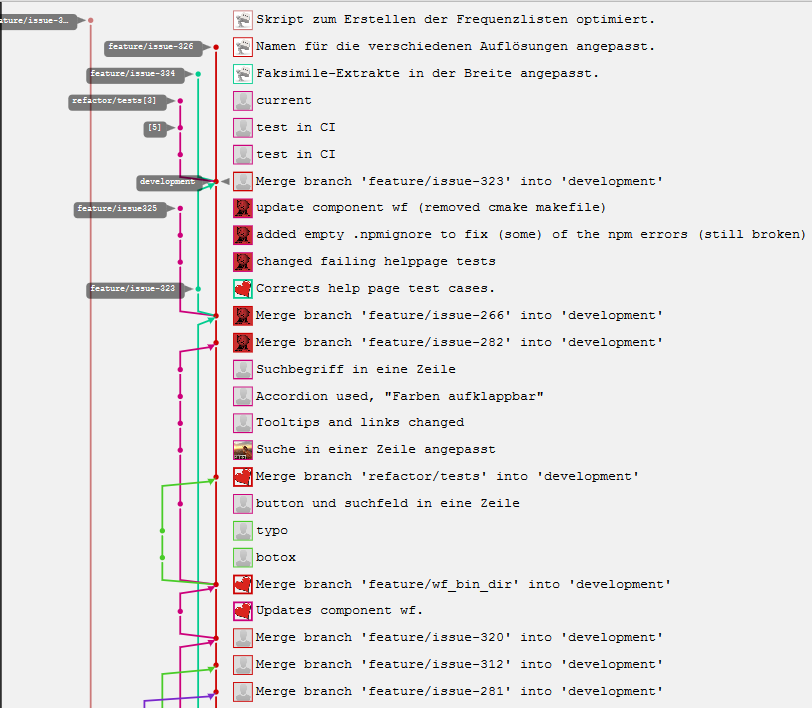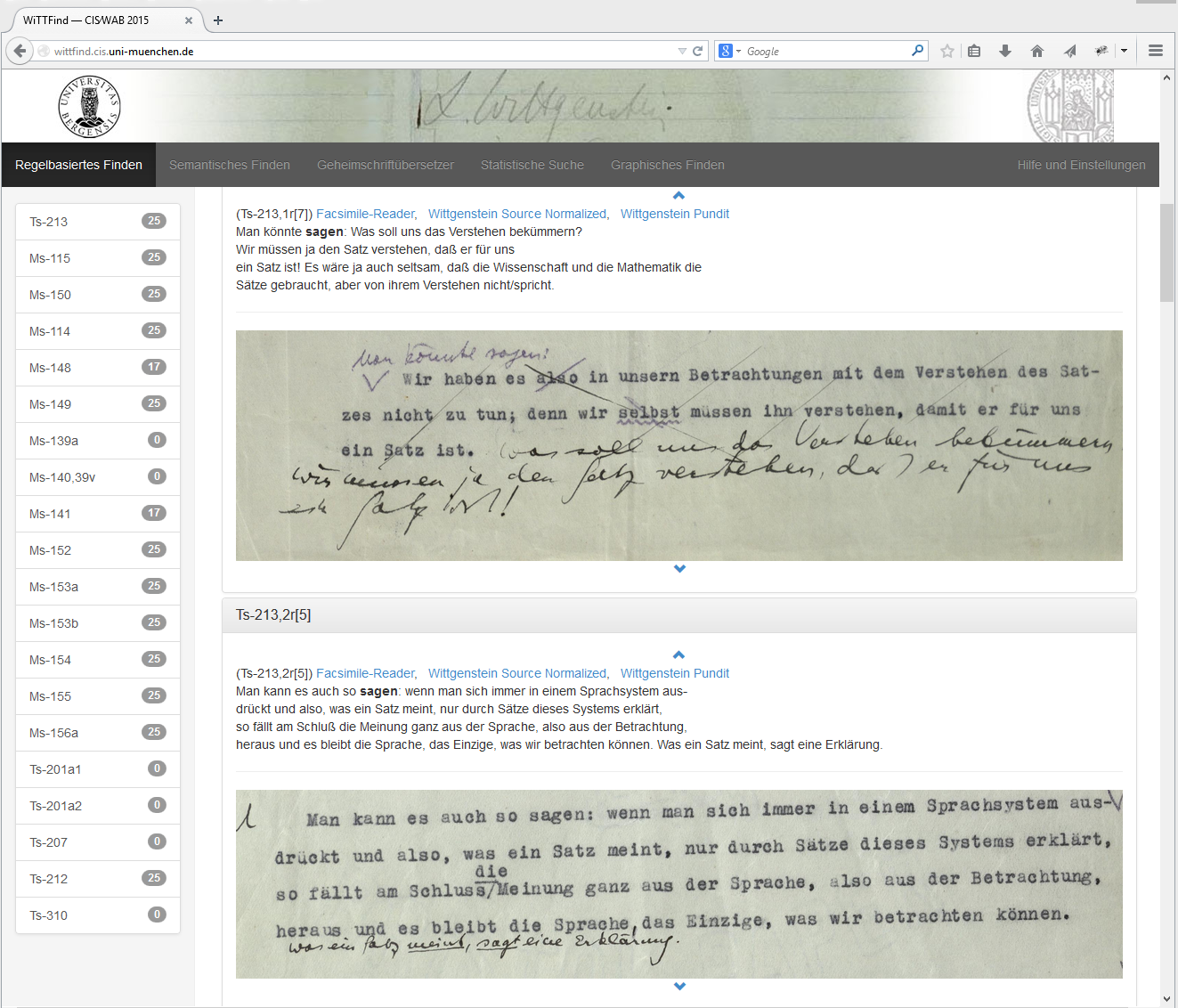*This is the final in a series of posts from Dr Maximilian Hadersbeck, the recipient of the DM2E Open Humanities Awards – DM2E track. You can read the final research paper here (in German).*
The research group “Wittgenstein in Co-Text” worked on extending the FinderApp WiTTFind tool, which is currently used for exploring and researching Wittgenstein’s Big Typescript TS-213 (BT), to the rest of the 5000 pages of Wittgenstein’s Nachlass that are made freely available by the Wittgenstein Archives at the University of Bergen and are used as linked data software from the DM2E project. Our work in January focused on finishing the final milestone of our project, finalizing the device and browser independent multidoc web frontend, successful placing a publication of our project. We close off our blogging series with some final remarks and a look in the future
Delivering the final milestone
We finished our gitlab and docker environment to produce a high quality FinderApp for Digital Humanity projects running under different operating systems. The git-server site is developed and offers all software modules. After extensive working and testing the development server we finalized and transferred the new FinderApp WiTTFind to our master-server, reachable under the permalink http://wittfind.cis.uni-muenchen.de.
To present our extensive work during our git-server based program development, we show in figure 1 a small excerpt of our issue management and branching concept at our git-server. There you see around 20 features, which where finished within the final milestone.

Finalizing the device and browser independent multidoc web-frontend
After finishing the development work of our bootstrap based FinderApp, we finalized our new multidoc web frontend and will also transfer it to our WiTTFind master server.
Starting in February, we will offer a browser- and device-independent web frontend which works with the same look & feel on mobile devices, tablet computers and arbitrary browsers. In figure 2 you see a screenshot of our new bootstrap driven webpage, reachable under our permalink address: http://wittfind.cis.uni-muenchen.de.

Successful placing a publication
One aim in our project was to place a publication of our work at an important congress. We followed the call for papers of the conference Digital Humanities im deutschsprachigen Raum – DhD 2015 (23-27 February 2015, Graz, Austria) and sent a paper and a poster to the conference committee. Both were evaluated well and accepted. In Graz, we will be presenting the paper “Wittgensteins Nachlass: Erkenntnisse und Weiterentwicklung der FinderApp WiTTFind“. The speaker will be Maximilian Hadersbeck. Co-authors to the text are Alois Pichler, Florian Fink, Daniel Bruder and Ina Arends. The poster which will be presented gives a demo of our project and has the title “Wittgensteins Nachlass: Aufbau und Demonstration der FinderApp WiTTFind und ihrer Komponenten.” The authors of the poster are Yuliya Kalasouskaya, Matthias Lindinger, Stefan Schweter and Roman Capsamun. Both presentations can be found in the programme of the conference: https://www.conftool.pro/dhd2015/sessions.php
Final remarks and a look into the future
With this blog we finish our five months work for the DM2E Open Humanities Award. I want to say thank you very much to the DM2E management and partners for the fruitful cooperation. I also want to say thank you Lieke Ploeger, who organized the award work and the Pisa event absolutely perfect. Thank you Lieke!
We also want to say thank you to Dr. Alois Pichler and his Wittgenstein-Archive Group in Bergen for their continuous, long lasting support and idea delivering. It was always and it is still a great pleasure for us to cooperate with him and his group. Thank you Alois!
But last not least I want to mention those colleagues and students, who really did the fantastic and absolute engaged programming around our git-lab, docker-environment, WITTfind and webpage programming, facsimile integration and so on. Those people are my students Roman Capsamun, Yuliya Kalasouskaya, Matthias Lindinger and Stefan Schweter and my colleagues Daniel Bruder und Florian Fink. Their work, not comparable to the little money they got, brought the FinderApp WiTTFind a great big step in front. Thank you very much to all of them.
Thank you also to the support from [email protected] from our Ludwig Maximilians University Munich, from Prof. Hinrich Schuetze and Prof. Klaus Schulz from my institute and the Wittgenstein-Trust in Cambridge. They will fund the attendance of the award group to the conference in Graz, where we will celebrate the award work of our FinderApp WiTTFind.
A look in the future: now we are best prepared for the conference in Graz, where we can present an EU-awarded, modern software tool, which is ready for new cooperation in the field of Digital Humanities.

Comments are closed.